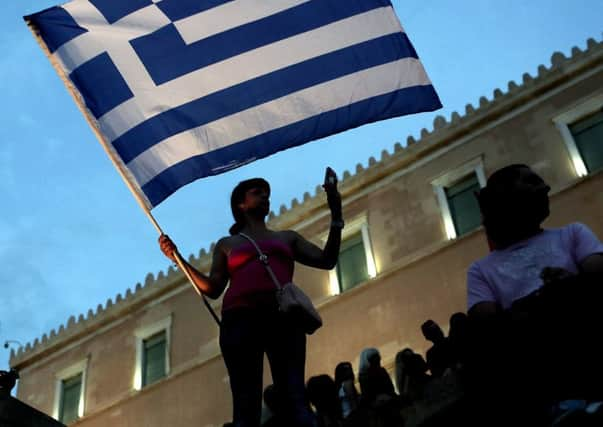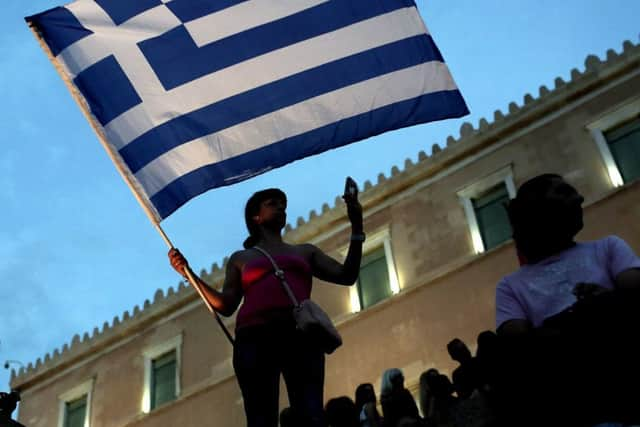Comment: Is Greek drama turning into a tragedy?


Stark choice. As an emergency meeting of the two sides’ negotiators was due to be held last night, just days before Greece’s existing bailout runs out, the International Monetary Fund, the European Central Bank (ECB) and the European Commission want to see watertight commitments from Greek prime minister Alexis Tsipras on areas like higher taxes, public services reform and eliminating early retirement.
The carrot, previously resisted by the troika of creditor negotiators, is that they are now prepared to consider debt relief as part of a new third bailout of the country. Is it enough for Tsipras to finally implement an economic reform plan that the creditors can live with?
Advertisement
Hide AdAdvertisement
Hide AdDelicate call. Tsipras may feel he would be buying a politically unacceptable pig in a poke in agreeing painful austerity measures in the game of brinkmanship in return for merely a promise of some debt restructuring/forgiveness down the line.


Stock markets rose yesterday on slightly more positive noises off-stage in the Greek theatre. But EU officials and bankers were warning last night that if an agreement could not be reached at the latest summit Greece could default on its debts before a key deadline on Tuesday, 30 June and force its exit from the single-currency zone.
Without such agreement, EU leaders have made it clear to the Greek PM they will not release €7 billion-plus to keep the country’s financial and civic wheels turning.
That could easily lead to an accelerated run on the Greek banks. Savers withdrew more than €6bn from Greek bank accounts last week, as households voted with their feet.
Against that backdrop, will the ECB be prepared to keep providing hand-to-mouth emergency funding for those banks? A Greek drama is being made out of a crisis, and currently there is no sign of any deus ex machina.
A tasty takeover treat
“OH, FERRERO Rocher chocolates! You are swallowing us, ambassador.” Thorntons – arguably more a Mother’s Day product bought at the station at the last minute – has agreed to sell itself to its posh fellow confectioner.
Thorntons has had its problems in recent years, including its major franchisee going into administration in 2012. A streamlined, retrenched version of the business has done somewhat better, but a slight sense of drift and vulnerability about the business has never quite vanished. And in February the group reported a disappointing 8 per cent fall in interim revenues, hit by cut-price competition from the supermarkets and glitches at its new centralised warehouse.
Therefore, the Italian-owned Ferrero Rocher group’s timing could be termed as sweetly opportunistic (no business disgrace in that).
Advertisement
Hide AdAdvertisement
Hide AdAt first sight, the transaction looks a decent way of expanding Ferrero’s British footprint, while probably taking out back office and distribution costs (even though the Italians have already pledged to keep Thorntons’ main factory in Alreton).
Ferrero can spend £112m on the acquisition after its best ever UK results last year. Confectionery-wise, it looks like a case of The Italian Job in reverse, then.